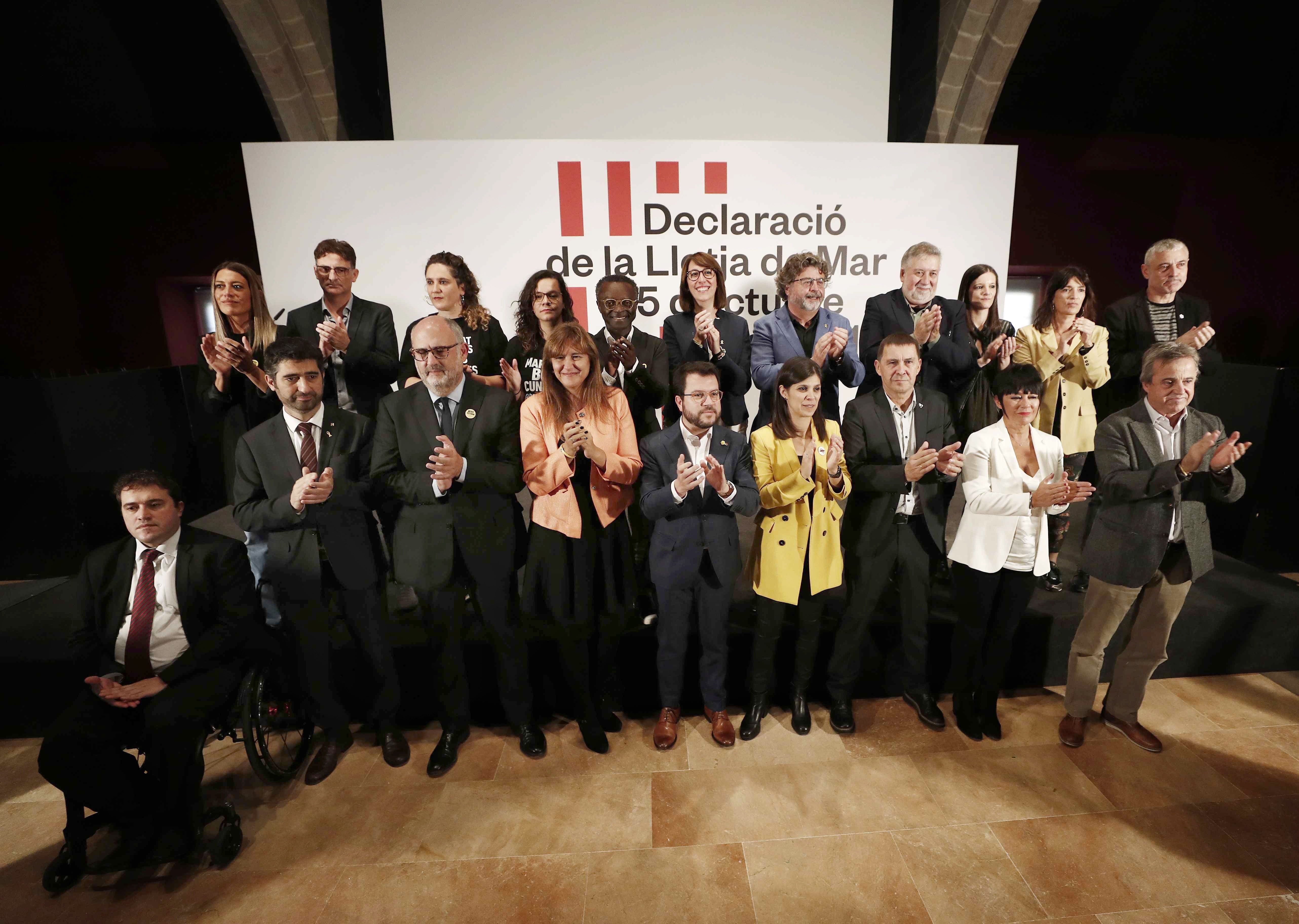Eleven different political groups representing the key minority nations of the pluri-national Spanish state - Basques, Galicians, and Catalan speakers from Valencia and the Balearic Islands as well as those from Catalonia itself - have formed a political alliance this Friday as a response to their "serious concern about the grave effects which the prison sentences against the Catalan political and social leaders will have on the exercising of fundamental rights for all citizens". In a joint manifesto, signed at Barcelona's Llotja de Mar palace, they express their rejection of the court convictions of the pro-independence leaders, defend the right to self-determination and, once again, call for dialogue as the only solution.
The so-called Llotja de Mar Declaration has been signed by Catalan parties ERC, JxCat, CUP, Crida Nacional, PDeCAT, and Democrates; Basque party EH Bildu; Galicia's BNG; Esquerra Valenciana from the Valencian Community; and two Balearic Island groups, Més Mallorca, and Més Menorca. Friday's act to present the document featured prominent figures from all these parties and the Catalan government, such as vice president Pere Aragonès and minister Jordi Puigneró, and deputies Laura Borràs, Marta Vilalta and Arnaldo Otegi. Of the parties which signed, several are part of autonomous governments, as in the case of Catalonia, the Balearic Islands and the Basque Country.
The goal of the initiative is to give visibility to the fact that the Spanish state does not just have a problem with Catalonia, but rather that it is a redirected conflict which affects all the state's diverse nations. The manifesto, extremely forceful, concludes with the signatories making a "commitment to search for democratic and stable solutions to the political conflict that our peoples maintain within the Spanish state."
The text questions whether Spain is a "fully democratic and modern state like those in its European neighbourhood," denounces that the state "has entered into a stage of regression, moving towards politics that are increasingly authoritarian, less democratic and more repressive" which "has affected both the diverse peoples as well as state-wide movements, which demand that the state is modernized and the previous regime definitively surpassed". Also, it asserts that there is a lack of "recognition and respect for the state's pluri-national nature", and that "separation of powers" does not exist. However, what does occur are "continuous threats of the suspension of autonomy, self-government and historical rights by any means".
Faced with this reality, the parties signing the declaration claim "the right to self-determination", they assert the "democratic and peaceful" character of their political action, call for the release of prisoners, the return of exiles, and the restoration of civil liberties and social policies that allow "the peoples" to move forward.
Finally, the statement appeals to the international community to "enable, support and promote these solutions".

